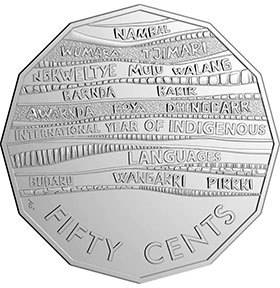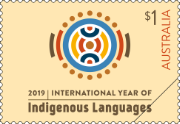History
Timeline results for 2011
Found 390 results for your search. Showing page 13 of 20.
Year from 2011
2019
-
Mick Dodson starts as the inaugural NT treaty commissioner. He will lead treaty negotiations between Aboriginal people and the NT government and present a final report within 2.5 years. His appointment is supported by all four NT land councils and the minister for Aboriginal affairs.
-
The German state of Baden-Württemberg intends to return ten identified Aboriginal skulls stored at the Albert Ludwigs University in Freiburg.
-
The high court delivers a landmark ruling recognising 'customary value' as a major component of compensation under the Native Title Act for the first time. It orders the Northern Territory government to pay $2.53m in compensation to a group of native title holders. It is the first time the high court has considered the monetary value of native title and associated compensation for the removal of land rights. The case is considered one of the most significant land rights cases since the Mabo ruling that could pave the way for billions of dollars in liability payouts by Australian governments. [1]
-

The Royal Australian Mint issues a 50 cents coin to commemorate the International Year of Indigenous Languages. The Royal Australian Mint issues a new 50 cents coin that shows the word "money" in 14 Aboriginal languages, a tribute to the International Year of Indigenous Languages. As there hasn't been a traditional Aboriginal word for "money", new words were used often related the look and feel of coins: piece, pebble, stone, rock, grey.
-
Victoria sets up the First Peoples’ Assembly of Victoria, an independent body that will be the voice of Aboriginal people in Victoria in the future treaty process and tasked to negotiate a framework for a treaty. It is a not-for-profit company with 33 elected representatives from 5 voting areas (four in regional Victoria and the fifth in metropolitan Melbourne) and 12 nominated representatives, one from each of the 12 formally recognised traditional owner groups in the state.
-
Greg Inglis, captain of South Sydney, announces his retirement from rugby league after 14 seasons for health reasons.
-
The Australian Capital Territory (ACT) government establishes the ACT Aboriginal and Torres Strait Islander agreement 2019–2028 which sets long-term aspirations for improving social, environmental, economic and cultural infrastructure in communities and acknowledges the right to self-determination. Its delivery action plan sets out ten focus areas: children and young people, community leadership, cultural integrity, inclusive community, justice, connecting the community, economic participation, health and wellbeing, housing, and life long learning. The previous agreement ran from 2015–18.
-

The commemorative stamp design shows the official logo of the International Year of Indigenous Languages 2019. Australia Post issues a stamp commemorating the International Year of Indigenous Languages. There were at least 250 Aboriginal languages in Australia before invasion. Of the 120 or so languages that remain, about 100 are at risk of being lost. Only about 13 languages are alive as a first language spoken by the younger generation.
-
The Federal Court approves a native title claim of the Bundjalung nation for areas of land and sea around Byron Bay in northern New South Wales, almost 20 years after they lodged it. The claim covers 800 hectares stretching from Broken Head to Brunswick Heads, including Australia's most easterly point at Cape Byron. It is the first positive native title determination in an area of NSW with a dense population.
-
A federal election confirms the Liberal/National Coalition and Prime Minister Scott Morrison for another term.
-
A group of eight Torres Strait Islanders submits a petition against the Australian government to the United Nations Human Rights Committee. The petition alleges that Australia is violating the plaintiffs’ fundamental human rights under the International Covenant on Civil and Political Rights due to the government’s failure to address climate change.
-
The International Council on Monuments and Sites, which works for the conservation and protection of cultural heritage places around the world, officially recommends world heritage status for the Budj Bim cultural landscape, a 6,600-year-old, highly sophisticated aquaculture system developed by the Gunditjmara people in south-west Victoria. If successful, it would become the first Australian site listed exclusively for its Aboriginal cultural value.
-
Prime Minister Scott Morrison appoints Ken Wyatt as Australia's first-ever Minister for Indigenous Australians who is actually Aboriginal.
-
Yorta Yorta soprano Deborah Cheetham premières Eumeralla, a War Requiem for Peace, a performance sung entirely in the reclaimed Gunditjmara language, and sold out weeks in advance.
-
Spark Health, an Aboriginal merchandise business, launches a Change.org campaign to open the use of the Aboriginal flag to all Australians after WAM Clothing, the current licensing holder, sent a cease and desist notice to the business. By September 2020 more than 140,000 people had signed the petition.
-
Ashley Barty wins the French Open tennis Grand Slam singles title in Paris as only the second Aboriginal woman (after Evonne Goolagong-Cawley) and is ranked World Number 2.
-
The Northern Territory introduces the Custody Notification Service (CNS) that obliges police to contact the North Australian Aboriginal Justice Agency after taking an Aboriginal person into custody. The NT government had announced the introduction in 2016.
-
After defeating German Julia Görges in the the Birmingham Classic, Ngaragu woman Ash Barty becomes the first Australian woman in 43 years to reach the top of the tennis singles rankings, after Wiradjuri woman Evonne Goolagong's triumph in 1976.
-
After a 17-year campaign, the Budj Bim Cultural Landscape near Portland, a 6,600-year-old Aboriginal aquaculture site in south-west Victoria, is added to the UNESCO World Heritage List. Older than the pyramids, the site proves that Aboriginal people built channels and pools to harvest eels, and also permanent stone houses. The site is considered one of the largest and oldest aquaculture sites in the world and became the first Australian World Heritage site to be nominated exclusively for Aboriginal cultural values.
-
A class action Hans Pearson took to the federal court in September 2016 on behalf of an estimated 10,000 Aboriginal workers in Queensland who had their wages stolen last century is settled with the state government for $190m. His class action covered 1939 to 1972, when he and his fellow Aboriginal workers had their pay given to the state under the Aboriginals Protection and Restriction of the Sale of Opium Act 1897. It is Australia’s fifth-largest class action settlement.
References
View article sources (1)
[1]
'High court native title award of $2.53m may open floodgates', The Guardian 13/3/2019

